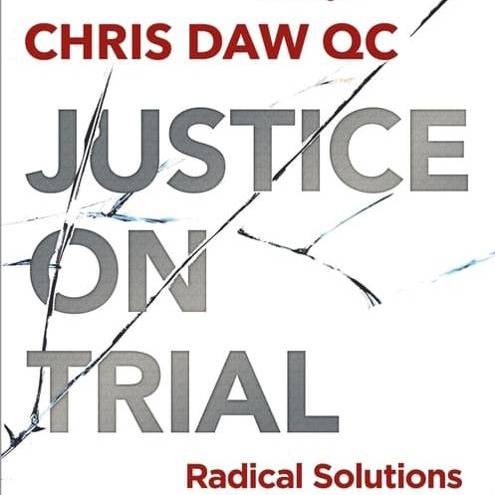British social realism is dead. The corpse stirs occasionally - current release Bullet Boy (2004) for instance, adds a new black British element to what previously has been a genre very much concerned with the white working class - but committed, naturalistic engagement with the everyday lives of ordinary people is not the cinematic force that it was. Leaving aside de-politicised, feel-good movies like Brassed Off (1996), The Full Monty (1997), or Billy Elliot (2000), only Mike Leigh and Ken Loach now regularly document the more desperate travails of the common people. But they do so in very different ways.
Leigh's vantage point is that of a distanced, somewhat superior observer, while Loach sees his people much more from within - he is patently committed to their cause. Of the two, perhaps unsurprisingly therefore, Leigh receives the more attention, and in films like Life is Sweet (1990), Naked (1993), Secrets and Lies (1996) and All or Nothing (2002) he has certainly created a distinctive take on British social mores. Recently he has been much fêted for Vera Drake (2004), a 1950s period piece which encapsulates many of the characteristic virtues and failings of his cinema. While, as so often with Leigh, it is graced by a compelling central performance, it is much less generous with its minor characters. The snobbish sister-in-law, the daughter and her fiancé, most of the middle-class authority figures are grotesque rather than empathically rounded. It is this resort to caricature that so often makes Leigh's films seem patronising, their overall tone less humanitarian than lugubriously misanthropic.
Some of that no doubt derives from his working methods. Developing a script from extensive rehearsal and improvisation clearly enhances actor involvement, but it can also generate a kind of centrifugal effect in which individual performances spin out of control (Brenda Blethyn in Secrets and Lies) and narrative coherence is sacrificed to actorly indulgence. The contrast with Loach is revealing here. He too encourages cast involvement, but in a more disciplined way. By shooting in sequence he allows his actors the rare luxury of orderly character development (though often without them seeing the full screenplay) and he also encourages improvisation. But, significantly, it is the scripted material which has priority when the film is edited.
This is as it should be, of course, for a director who has worked closely with such an impressive array of writers: Barry Hines, David Mercer, Trevor Griffiths, and, most often, Jim Allen, in Hidden Agenda (1990), Raining Stones (1993), Land and Freedom (1995), and numerous television films including the monumental series Days of Hope (1975). Latterly he has had an extraordinarily productive relationship with Paul Laverty, encompassing five features from Carla's Song (1996) to Ae Fond Kiss (2003) as well as Loach's section of the portmanteau film Tickets which we will see later this year. This eagerness to collaborate contrasts distinctly with Mike Leigh's auteur leanings, perhaps also signifying Loach and his writers' genuine commitment to community, cooperation and, dare one say it, socialism.
Indeed, were it not for the expression's Stalinist provenance, Loach's cinema might be more appropriately described as 'socialist realism'. Unlike Leigh, from the very beginning he has made it clear that portraying the desperate social circumstances in which people have to live is a political project as much as a humanitarian or sociological one. While nothing he has done since then has had the remarkable public impact of his TV drama-documentary about homelessness, Cathy Come Home (1966) - the controversy it provoked contributed to the formation of the charity Shelter and to changes in the law - he has never retreated from that political commitment.
Of course, the politics have taken different forms. Sometimes, especially with Jim Allen, he has edged toward didacticism (consider the long scene in Land and Freedom debating the merits of collectivisation) though always ameliorated by that talent apparent since Kes (1969) to both move us and to make us laugh. In the best of his work with Laverty – My Name is Joe (1998) and Sweet Sixteen (2002) – politics and sentiment are finely balanced, leaving the spectator angered by evident injustice and emotionally overwhelmed. Those films are far more powerful than Secrets and Lies or Vera Drake, conveying, as they do, a forceful sense of the sheer, brute compulsion of economic necessity, and a profound empathy with those trying to resist it.
The central character in My Name is Joe sums it all up as he desperately explains his actions to his social-worker lover: "I'm really sorry but I don't live in this nice tidy wee world of yours. Y'know, some o' us cannae go to the police. Some o' us cannae go to the bank for a loan. Some o' us cannae just move hoose and fuck off out o' here. Some o' us don't have a choice." It's a speech that could stand for all Loach's oppressed people, whether in Glasgow, Los Angeles or Nicaragua. It is a great virtue of his cinema that he has never compromised that fierce commitment in the face of commercial pressures, and an even greater one that he has never lost his genuine compassion for the disinherited, displaced, and deprived. If social realism is to rise from the dead, and someone, be it Lynne Ramsay, director of Ratcatcher, or Saul Dibb of Bullet Boy, take on the mantle from Loach, then that same commitment and compassion, surely, is what their aim should be.
Andrew Tudor lectures at York University

